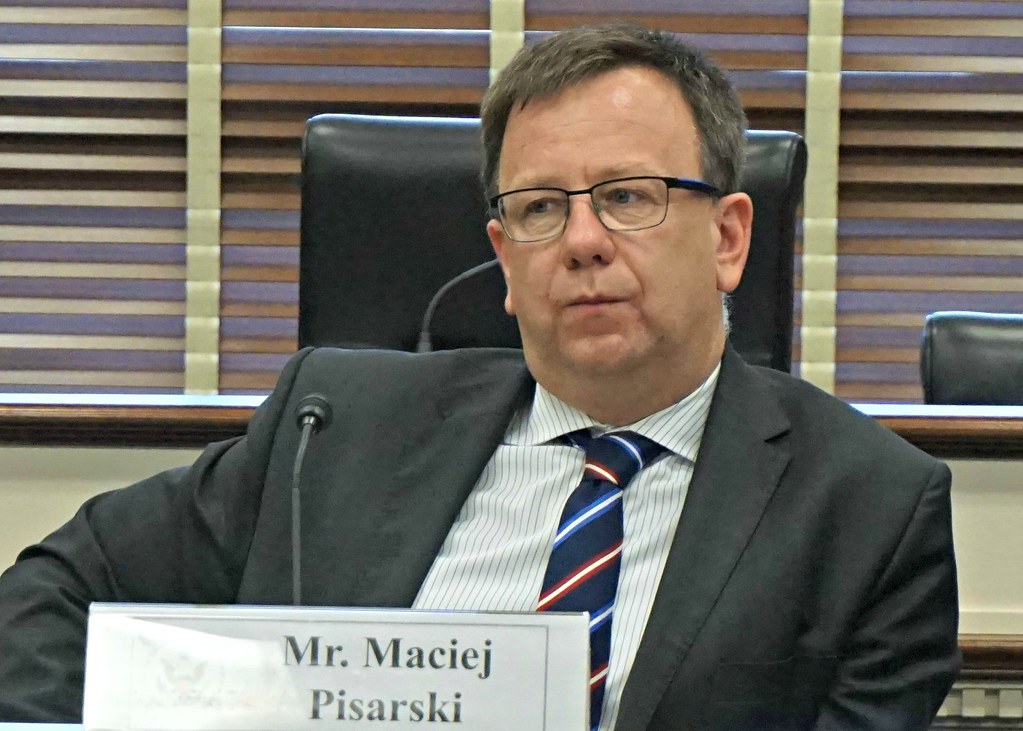ISLAMABAD: There needs to be a global response to Russia’s aggression in Ukraine and Europe’s allies must choose between aggressor and victim, according to Polish Ambassador Maciej Pisarski.
Talking to Dawn, the ambassador said: “We are in an unusual scenario where everybody would remember what decision one took under these circumstances, whether he or she sided with the attacker or the victim. There is rarely such clarity for moral options as in this situation.”
He highlighted the necessity for “standing unified against this aggression” for the benefit of an international system based on international law and human rights.
Poland has a 332-mile border with Ukraine and has emerged as a major actor in this conflict. It has, meanwhile, welcomed almost 575,000 people fleeing the fighting till Wednesday, which is the greatest number among all of Ukraine’s neighbours. Most of the Pakistanis, who were in Ukraine at the time of the commencement of the Russian invasion, were evacuated to Poland. As of Wednesday night, 1,319 Pakistanis have entered the Polish border from Ukraine.
Poland, which is the largest NATO member in eastern Europe, feels itself at the forefront because of its strategic location. Poles fear the fighting in Ukraine has brought the Russian danger to their doorsteps.
The ambassador’s words came in the backdrop of a resolution voted by the United Nations General Assembly calling on Russia to immediately halt its military actions in Ukraine. A total of 141 countries voted in favour of the resolution, five against it and 35, including Pakistan, abstained.
European governments have been worried about Pakistan’s attitude on the crisis. Islamabad claims it is keeping impartial and has highlighted the settlement of conflict via discussion and diplomacy.
A handful of Islamabad-based foreign envoys, largely from the European Union, had earlier on Tuesday pressured Pakistan to denounce Russia’s aggression on Ukraine at the United Nations General Assembly’s emergency session.
Pisarski said: “We are reaching out to the Ministry of Foreign Affairs” for ” tight discussions” as a group of diplomats from the European Union, NATO members, and G-7 nations.”
“We’re having an open and sincere discussion right now. In light of what’s at risk, this dialogue is critical,” he said.
When asked about the conflict’s impact on European architecture, he replied it would be felt by everyone. Because of this, the stakes for Europe were enormous, he said.
“We live in a world governed by international law and not by the rule of power; so the question is whether principles like state sovereignty and territorial integrity would be respected or violated at the will of stronger countries; or whether countries will be able to chart their own futures or would be taught what the future should be by their neighbours,” he argued.
These, according to Amb Pisarski, were the most important issues to address. International law should be upheld, he hoped, and military force should not be used in pursuit of political ends. He desired that international law would be sustained.
As for the Ukraine situation and the UNGA session, EU Foreign Policy Chief Josep Borell phoned Foreign Minister Shah Mahmood Qureshi.
Islamabad has continuously emphasised de-escalating tensions between Russia and Ukraine, resuming conversations, keeping the lines of communication open, and engaging in diplomatic efforts, according to the Foreign Office.
It was stressed by Mr Qureshi that an answer must be found that adheres to applicable multilateral accords as well as international law and the ideals laid out in the UN Charter.
At the same time, Mr Borell offered a view from the European Union, emphasising both the threat to international stability and the influence on the global economy that the war has on both.


